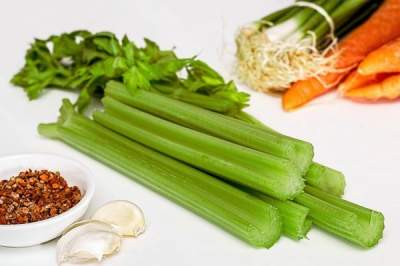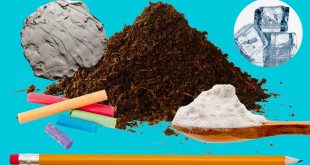 If you suffer from such problems as constipation or fluid retention in the body, you can improve your condition using natural means.
If you suffer from such problems as constipation or fluid retention in the body, you can improve your condition using natural means.
The most healthy and effective way to solve problems such as constipation or fluid retention is improving your lifestyle as a whole where, in particular, will present a more balanced diet that includes vegetables with diuretic and purgative properties.
As a preliminary recommendation, it is important to remember that when you buy vegetables you should always choose grown the most environmentally friendly way.
Fresh organic fruits or vegetables contain more phytochemicals and thus more beneficial to our health.
Vegetables that are the best diuretic and laxative
1. Artichoke
Acts as a natural diuretic due to its content of substances such as inulin and its mineral salts, especially a lot of them in the leaves.
The Spanish Association of Public Power (SENK) recommends that you consume one to two servings of artichoke daily to solve the problem of constipation and improve overall health.
Another useful property, which is known for artichokes is their ability to protect the liver, this is due to one of its main components: cynarine.
Artichokes improve our digestion by stimulating the production of bile.
They are also rich in flavonoids, vitamin b complex and contain iron, magnesium, phosphorus and potassium, the perfect combination of trace elements to facilitate the withdrawal of excess fluid.
In what form is the best way to eat artichokes?
A delicious and healthy way of eating them is to cook them steamed with lemon juice. Water that will remain after their preparation is also very useful.
2. Celery
This vegetable is one of the healthiest and most delicious. Celery is rich in nutrients, such as vitamins a, b, C, and minerals (potassium, calcium, magnesium and zinc), making it undoubtedly one of the most effective diuretics and laxatives.
This vegetable should always be present on your Desk:
Its a balance between two basic elements, sodium and potassium, has a diuretic effect.
Celery is a natural anti-inflammatory agent, mainly thanks to one of its components, polyacetylene.
This plant is one of the richest in fiber, so if you add it in your meals, it will be unique and delicious way to regulate the bowels.
Also do not forget that the celery is an indispensable component of any diet for weight loss.
In what form it is best to drink celery?
You can eat it raw or cooked. In addition, an excellent tool for the treatment of constipation and fluid retention is a cocktail of pineapple and celery. Drink it in the morning for 7 days. It is very tasty!
3. Mangold (leaf beet)
Swiss chard is a vegetable that some people hate (especially children), and others adore. However, you should know that it has many useful properties: improves digestion, refreshes, is diuretic and laxative.
Chard is rich in vitamin a, it is ideal to strengthen the immune system and care for our bodies when we follow a diet for weight loss.
Given the high water content and potassium in it, chard is a diuretic, which can address the problems of liquid retention and help to cope with hypertension.
In what form is the best way to eat chard?
In order to solve the problem of fluid retention, the best way to eat Swiss chard raw salad, for example.
At the same time, to combat constipation, you can prepare a remedy of half Cup of juice of chard, mixed with a tablespoon of olive oil and take on an empty stomach, for 7 days.
4. Bow
Did you know that onion is one of the best diuretics and laxatives? This is true, and the truth is that, along with garlic, this vegetable is considered a drug, therefore, should always be included in the diet.
Bow has alkalizing effects on the body that allows it not only easier to remove toxins and prevent fluid retention but improves the health of many organs, due to its content of flavonoids such as quercetin, vitamin E, potassium, folic acid, vitamin C and, especially, fiber.
In what form it is best to eat onions?
Undoubtedly the healthiest way of eating onions — eat it raw, but in small quantities and very finely chopped. Perfect if you can add onion in salads.
As for dealing with constipation, the best method is to cook halved onion in one liter of water. Drink the broth during the day, adding a spoonful of honey. This is a very useful and effective tool.








